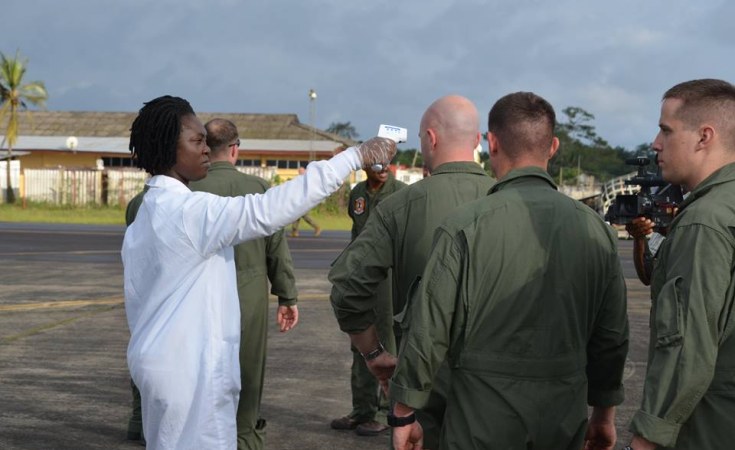President Obama has made it crystal clear that Ebola is an urgent global crisis that demands an urgent global response.
The United States has intensified every aspect of our engagement, and that includes providing Ebola treatment units, recruiting first responders, and supplying a critical set of medical equipment.
The administration is working as a team to make sure that we bring all our resources to this effort; for my part, I am working extremely closely with Rajiv Shah, the USAID director, Deputy Secretary of State Heather Higginbottom and our Ebola Coordinator Ambassador Nancy Powell.
But I want to expand that effort with an urgent plea to countries around the world to step up even further. While we are making progress, we are not where we need to be. There are additional needs that have to be met in order for the global community to respond effectively to this challenge -- and to make sure that we protect people in all of our countries.
It is not just a question of sending people, though it is vital to send people. But we need Ebola treatment units. We need health-care workers. We need medevac capacity. We need mobile laboratories and staff.
We also need non-medical support: telecommunications, generators, incinerators, public communications capacity, training, construction.
There is a desperate requirement for major assistance to strengthen health systems of stricken countries, for cash to support them in this critical time and for transportation to get equipment to the right people and places.
All of these things are frankly urgent if we are going to move quickly to contain the spread of Ebola. We need airlines to continue to operate in West Africa and we need borders to remain open. We need other African countries with the capacity to send responders to join the effort. And we need to make sure that the brave health-care workers who go are properly trained, properly equipped and supported to prevent additional infections.
Many countries are already contributing, but the scale of needs is dramatic. The United States has contributed $113 million to the United Nations response. Smaller countries have stepped up to the plate - some quite remarkably. Some smaller countries are contributing way above their per capita population.
But the fact is more countries can and must step up to make their contributions felt. There are not enough countries to make the difference to be able to deal with this crisis. We need more nations - every nation has an ability to do something on this challenge.
We already have a shortfall still of some $300 million. The United Nations has identified $1 billion in urgent needs. The World Bank has put in 22 percent. The United States has put in 11 percent. Private sector, 10 percent. More is needed.
Providing this money is a critical component of our ability to be able to meet this challenge, and we need people to step up now. Now is the time for action, not words. And frankly, there is not a moment to waste in this effort.
John Kerry serves as U.S. Secretary of State. This column originally appeared on the Washington Post's PostEverything site.


